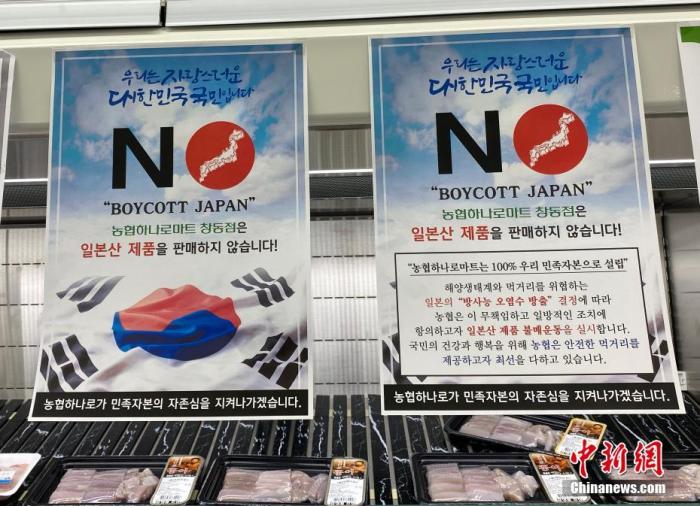Chinanews, December 7th, a comprehensive report, on the 6th, the South Korean Ministry of Foreign Affairs released the "2021 Diplomatic White Paper", reviewing the keynotes and achievements of foreign policy in 2020. On the same day, Japanese Prime Minister Fumio Kishida delivered a policy speech, also on South Korea-Japan relations It was stated, but the two countries’ positioning of each other showed differences.
In South Korea's "2021 Diplomatic White Paper", Japan is referred to as the "closest neighbor", and South Korean media claim this shows the willingness to improve the relationship between the two countries.
In his policy speech, Fumio Kishida only referred to South Korea as an "important neighbor," and displayed an uncompromising and tough attitude on historical issues, and asked South Korea to take reasonable measures to deal with it.
Data map: South Korean and Japanese civil organizations in Germany held a rally in front of the Brandenburg Gate in Berlin, once again urging the Japanese government to formally apologize to the victims of the "comfort women" system violence and provide compensation.
Photo by China News Agency reporter Peng Dawei
The historical deadlock is still there, but Japan is still the "closest neighbor"?
According to Korean media reports, on the 6th, South Korea’s Ministry of Foreign Affairs released the "2021 Diplomatic White Paper", which explained the relationship between South Korea and Japan and called Japan the “closest neighbor”.
Data map: A slogan such as "Boycott Japanese products" was displayed in the seafood sales area of a large supermarket in Seoul, South Korea.
Photo by China News Agency reporter Zeng Nai
According to the white paper, the South Korean government adopts a dual-track tone, treating historical issues separately and advancing future-oriented cooperation with Japan in substantive areas, striving to stabilize and develop South Korea-Japan relations.
"Korea Ilbo" analyzed that although the relationship between South Korea and Japan is facing severe tests due to historical issues, it also shows that South Korea will never give up the willingness to improve the relationship.
Japan has a tough attitude, and South Korea is only an "important neighbor"?
On the same day, Japanese Prime Minister Fumio Kishida delivered a policy speech, stating in diplomacy that South Korea is an "important neighboring country" and Japan will, based on its consistent position, strongly urge South Korea to take reasonable measures.
Data map: Japanese Prime Minister Fumio Kishida.
Yonhap News Agency said in this analysis that Kishida Fumio’s remarks can be understood as the Japanese side will not compromise on the victims of forced labor and comfort women.
Among them, "requiring the South Korean side to take reasonable measures" means that the Japanese side advocates the contradiction between South Korea and Japan regarding forced labor and comfort women. It has passed the 1965 "Korea-Japan Claim Agreement" and the 2015 "Korea-Japan Comfort The "Women Agreement" was resolved. Therefore, the South Korean court denied the ruling made by the aforementioned agreement, which violated international law and requested the South Korean government to take countermeasures again.
In fact, South Korea and Japan have been arguing over historical issues.
Recently, the South Korean Police Commissioner’s landing on the disputed island angered Japan. The two sides diverged in their positions. They also disrupted a joint press conference of the US, Japan, and South Korea deputy foreign ministers originally planned to be held in Washington. Both Japan and South Korea were absent, leaving the United States alone. To the media.
Data map: South Korea held a joint defense military exercise in the waters around the disputed islands between Japan and South Korea.
In addition, Korean and Japanese diplomats are also discussing the issue of forced labor and comfort women, and the two sides are still arguing.
The Japanese side pointed out that Japan-South Korea relations continue to be "in a very severe situation" and strongly urged the South Korean side to "appropriately respond."
The South Korean side refused to give up, and once again conveyed the South Korean side's concerns about the issue of Fukushima nuclear sewage discharge.

